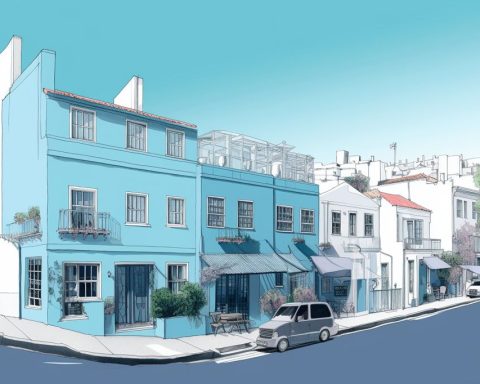In the colorful Bo-Kaap neighborhood of Cape Town, a remarkable 150-year-old well has been discovered during construction work, revealing a treasure trove of history. This ancient well connects the past to the present, showcasing the area’s rich cultural heritage linked to the Cape Malay community. The City of Cape Town is dedicated to preserving this significant find while developing the Bo-Kaap Market, ensuring that progress respects the stories and memories woven into the neighborhood. This discovery not only adds depth to Bo-Kaap’s narrative but also emphasizes the importance of honoring history as the city grows.
What is the significance of the 150-year-old well discovered in Cape Town’s Bo-Kaap?
The 150-year-old well in Bo-Kaap is a vital archaeological find, offering insights into the neighborhood’s rich history and cultural heritage. It connects past ownerships and transformations, highlights the area’s diverse cultural narrative, and underscores the importance of preserving historical sites amidst urban development.
A Serendipitous Discovery
In the vibrant heart of Cape Town’s Bo-Kaap neighborhood, a remarkable discovery has captured the attention of historians, archaeologists, and local residents alike. During routine construction work for upgrading the Bo-Kaap Market site, workers stumbled upon a stone well, believed to be more than 150 years old. This well, found on the grounds linked to the historically significant Spolander House, offers a tangible connection to the area’s rich and multifaceted past.
The Spolander House, located at the junction of Yusuf Drive and Pentz Street, is recognized as a national heritage site, and the land where the well was discovered holds provincial heritage status. Alderman James Vos, the City’s Mayoral Committee Member for Economic Growth, described the moment as one of reverence and responsibility. “Upon discovering the well, our officials instructed the contractor to immediately cease work. On confirmation that the well was indeed archaeological, officials from Heritage Western Cape were notified,” Vos explained. This swift action highlights the city’s dedication to protecting its historical assets.
The Historical Significance of the Well
To truly understand the importance of this well, one must delve into the early 18th century. Situated on a portion of the Schotsekloof farm, originally granted in 1707, the land has seen numerous changes in ownership and subdivision over the years. By the 1830s, the property belonged to Mr. Pentz, adding another layer to the area’s complex history. The well has borne silent witness to these transformations, including the expropriation of the property in the 1930s under the Slums Clearance Act of 1934.
Bo-Kaap is renowned for its colorful houses and cobblestone streets, representing a melting pot of cultural heritage, particularly linked to the Cape Malay community. The neighborhood’s rich history is not only reflected in its architecture but also in the stories and memories passed down through generations. The discovery of this well adds a new chapter to this ongoing narrative, providing a rare physical link to the past.
Recognizing the well’s historical importance, the City of Cape Town has committed to its preservation. Collaborating with the Bo-Kaap community and other stakeholders, city officials aim to protect the structure while integrating it into the urban landscape thoughtfully. Currently, a stop-work order and a five-meter buffer zone ensure the well’s protection during ongoing developments.
Transforming Bo-Kaap Market
The development project at the Bo-Kaap Market site is slated for completion by May 2025, promising a significant transformation of the space. The plans include new trading stalls, a timber-decked seating area, hard landscaping, and a traders’ support and services center. Through this project, the City aims to honor Bo-Kaap’s natural and historical features while promoting the area’s commercial and tourism potential. “The City’s goal in undertaking this project is to create a dignified and accessible trading area to grow the commercial and tourism potential of the area,” Vos stated.
Balancing development with preservation underscores the City’s respect for its rich heritage. Bo-Kaap’s unique identity, shaped by a blend of historical periods and cultural influences, epitomizes Cape Town’s broader narrative. The well’s discovery does more than illuminate the past; it informs and enriches the present and future.
Public participation in the development process began on March 27, 2025, and will continue for 30 days. This period allows registered interested and affected parties to contribute their input, ensuring that the redevelopment aligns with the community’s vision. This inclusive approach demonstrates the City’s commitment to respecting and incorporating the voices of Bo-Kaap’s residents.
A Broader Historical Context
The story of Bo-Kaap’s well recalls other notable urban discoveries, such as the excavation of Pompeii or the Roman baths in England. These findings do more than reveal artifacts; they uncover stories, lifestyles, and shared human experiences across time. Although modest in appearance, the Bo-Kaap well potentially holds invaluable insights for archaeologists and historians.
Reflecting on this discovery necessitates an appreciation of Cape Town’s broader historical tapestry. The city’s layered past, marked by colonialism, migration, and cultural amalgamation, is mirrored in Bo-Kaap’s streets. The neighborhood has evolved through various periods, each leaving its mark. Thus, the well is more than a relic; it symbolizes resilience and continuity, a reminder of the generations that relied on it, contributing to Bo-Kaap’s rich history.
As Cape Town navigates the intersection of past and future, it sets a precedent for how urban development can coexist with heritage preservation. The well in Bo-Kaap exemplifies this balance, showing that progress and historical respect can harmonize, benefiting both the community and its cultural legacy.
The journey of discovery and preservation in Bo-Kaap reflects a global challenge faced by cities in honoring their past while forging ahead. This delicate balance promises a richer, more nuanced urban future. The well, a silent guardian of history, now stands as a testament to this commitment, bridging centuries and enriching the present with the wisdom of the past.
By engaging with local communities and preserving historical sites, cities can ensure that development does not come at the cost of heritage. The story of the well in Bo-Kaap is a microcosm of this broader endeavor, illustrating how historical preservation and modern progress can coexist in harmony. Through this approach, Cape Town not only honors its past but also paves the way for a future enriched by its historical legacy.
FAQ: The 150-Year-Old Well in Cape Town’s Bo-Kaap
What is the historical significance of the 150-year-old well discovered in Bo-Kaap?
The well is a vital archaeological find that gives insights into Bo-Kaap’s rich history and cultural heritage. It connects various ownerships and transformations of the area, highlighting the narrative of the Cape Malay community and the importance of preserving historical sites amidst urban development.
How was the well discovered?
The well was uncovered during routine construction work at the Bo-Kaap Market site. Workers noticed the stone structure, and upon inspection, it was confirmed to be a significant archaeological find, prompting immediate action from city officials to protect it.
What measures are being taken to preserve the well?
The City of Cape Town has implemented a stop-work order and established a five-meter buffer zone around the well to ensure its protection during ongoing developments. They are collaborating with the Bo-Kaap community and other stakeholders to thoughtfully integrate the well into the urban landscape.
What are the plans for the Bo-Kaap Market site following the discovery?
The Bo-Kaap Market project, set for completion by May 2025, includes new trading stalls, a timber-decked seating area, and a center for traders’ support and services. The development aims to honor Bo-Kaap’s historical features while enhancing its commercial and tourism potential.
How can the public participate in the development process?
Public participation began on March 27, 2025, and will continue for 30 days. This allows registered interested and affected parties to contribute their input, ensuring that the redevelopment aligns with the community’s vision and needs.
Why is the discovery of the well important for Cape Town’s broader historical context?
The well symbolizes resilience and continuity, reflecting the layered history of Cape Town, marked by colonialism, migration, and cultural amalgamation. It serves as a reminder of the generations that depended on it and highlights the importance of balancing urban development with heritage preservation for a richer, more nuanced future.











